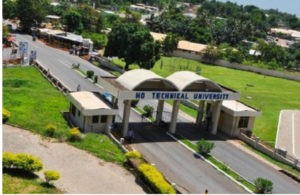Ho Technical University cited for failure to process transactions through GIFMIS
 The Management of Ho Technical University, failed to process financial transactions through the Ghana Integrated Financial Management Information System (GIFMIS), the 2020 Auditor-General’s report has revealed.
The Management of Ho Technical University, failed to process financial transactions through the Ghana Integrated Financial Management Information System (GIFMIS), the 2020 Auditor-General’s report has revealed.
Financial Management Information System (FMIS) are a set of automation solutions that allow Government finance and accounting staff to carry out their day-to-day operational tasks.
The report recommended that the Management of the University should ensure that the Controller and Accountant-General’s Department fixed all the relevant platforms to enable the processing of their transactions through the GIFMIS system as required by the regulation.
“Our audit disclosed that five members of staff who were recruited between 1 September 2020 and 12 October 2020 resigned from their positions without giving the three months or six months prior notice as stipulated in the terms and conditions of their appointment,” it said.
“We recommended to Management to recover the total salaries of GH¢110,651.04 from the officers in lieu of notice.”
It said their review of payroll disclosed that 11 separated staff of the University were paid a total of GH¢93,905.20 as unearned salaries during the audit period.
“We advised Management to recover the unearned salaries from the affected staff.”
The report revealed that between August 2019 and May 2020, Management granted salary advance totalling GH¢40,800 to three members of staff, declaring that out of the total advance granted, GH¢4,800 had been recovered leaving a balance of GH¢35,510.
The report recommended to Management of the University to recover the outstanding amounts from the affected officers.
“We noted during our review of the accounting documents that the University invested an amount of GH¢155,396.88 with the defunct Gold Coast Fund Management Limited, neither the principal nor the returns had been redeemed from the receiver, Blackshield Capital Limited,” it said.
“We recommended to Management to pursue the recovery of the investments from the receiver.”
Source: GNA
